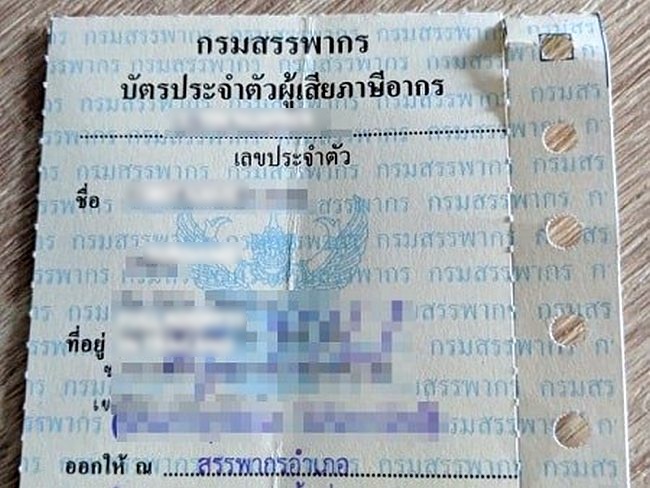
The Thai tax authority has announced, in its fiscal report for last year, the scooping up of a total of 395 billion baht (circa US$11 billion) in personal income taxes. This was in addition to huge sums raised via value-added tax on sales and corporate or company taxes. Thai Revenue, as is well known, is taxing assessable overseas income, no matter when sent to Thailand, starting on January 1 2024. Foreigners and Thais who believe they have tax to declare should include their overseas taxable income during 2024 on their tax form for 2025.
Significantly, the Revenue also reports that the number of people filing personal income tax forms during the last 12 months amounted to 11 million, mostly Thais, and only about a quarter of the adult working population. In other words, the vast majority of Thais and foreigners do not register with the Revenue via a tax identification number. Personal income taxes in Thailand are collected in arrears and require registration and the filling in of a tax form in the following fiscal year. Contrary to numerous inaccurate reports on the internet, international cash transfers to Thailand are not taxed on arrival.
Very many Thai expats are concerned about the tax implications of sending money from abroad now that January 2024 has arrived. Any taxes due won’t be payable until the tax year 2025 and will require registration to obtain a tax identification number. In other words, there is time for more detail to emerge before any taxes would be payable. Many tax accountants in Thailand believe that foreign transfers from pre-taxed savings, pensions and gifts will not be taxable again, although the Revenue has not specifically addressed that issue or the implications of double-taxation treaties with 61 countries.
The main aim of the Revenue is to close tax loopholes which formerly allowed Thais and some wealthy foreigners to reap huge profits from overseas investments, currency speculations and cash buildups in offshore accounts often held for years. Separately, the Revenue has published new reporting rules for digital platform operators to allow it to collect information on sellers’ total income from their online activities, aiming to nudge more online product and service providers into the tax system.
Many experts believe that the recent words of Lavaron Sangsnit are highly relevant to all recent tax announcements: “The world is getting smaller, more connected and traceable because of digitalization. In the past, it may have been impossible to detect tax evasion, but now it can easily be detected.” Now that Thailand has joined the Common Reporting System (CRS) of around participating 120 countries, financial institutions round the world will inform member governments of individuals’ transactions to fight tax evasion and protect the integrity of tax systems. In other words, when you send money abroad it is no longer a private affair.







